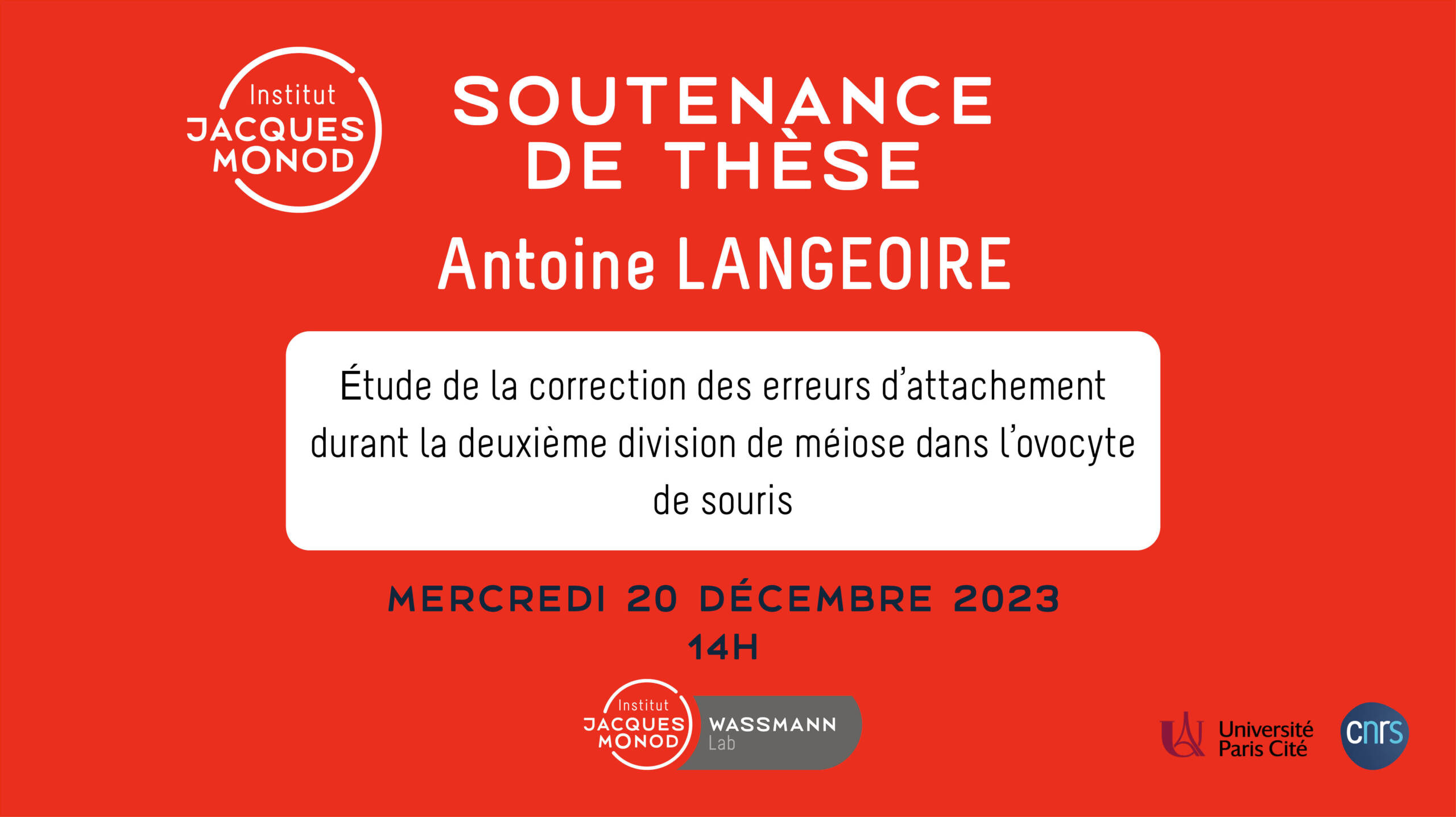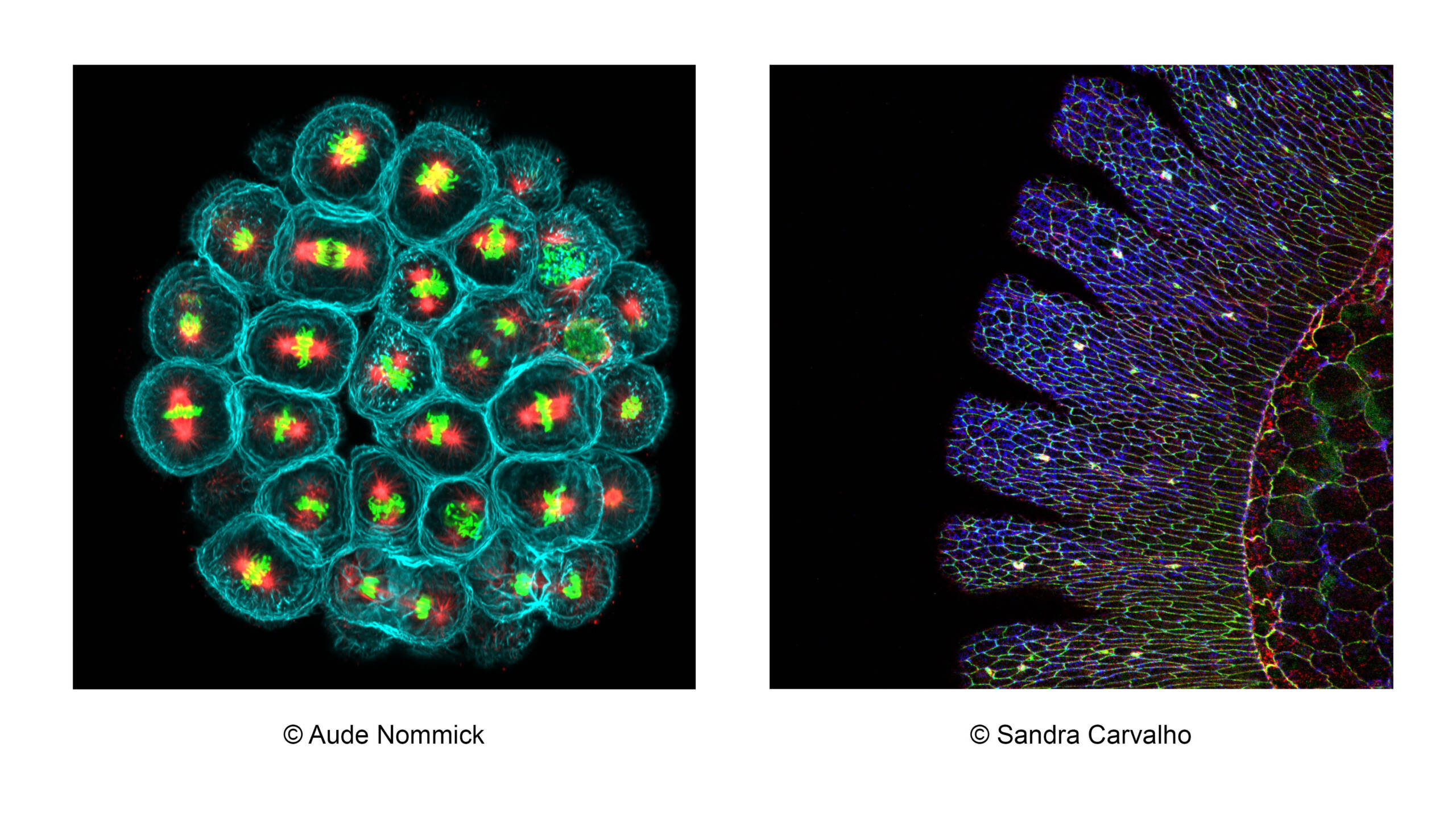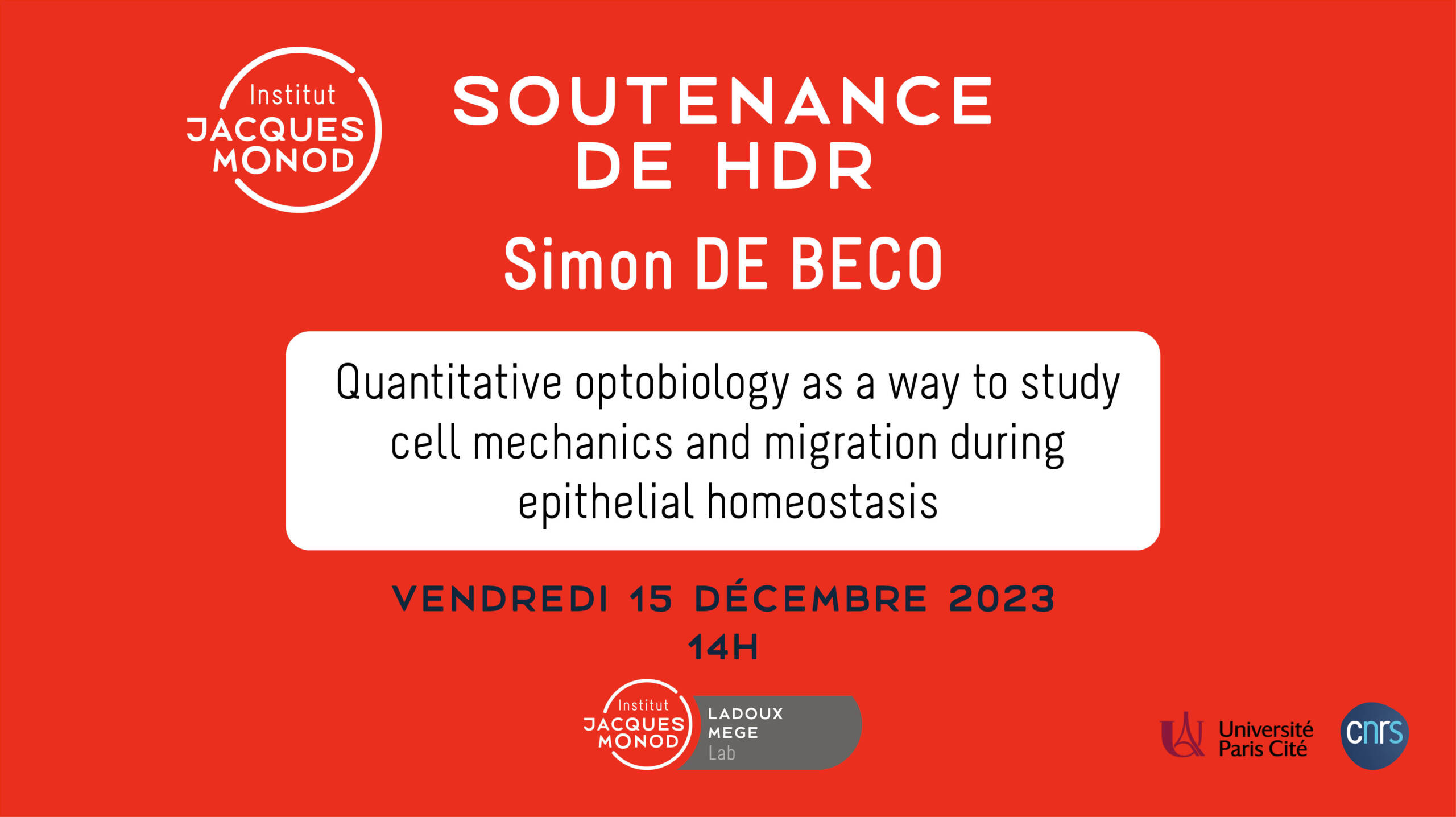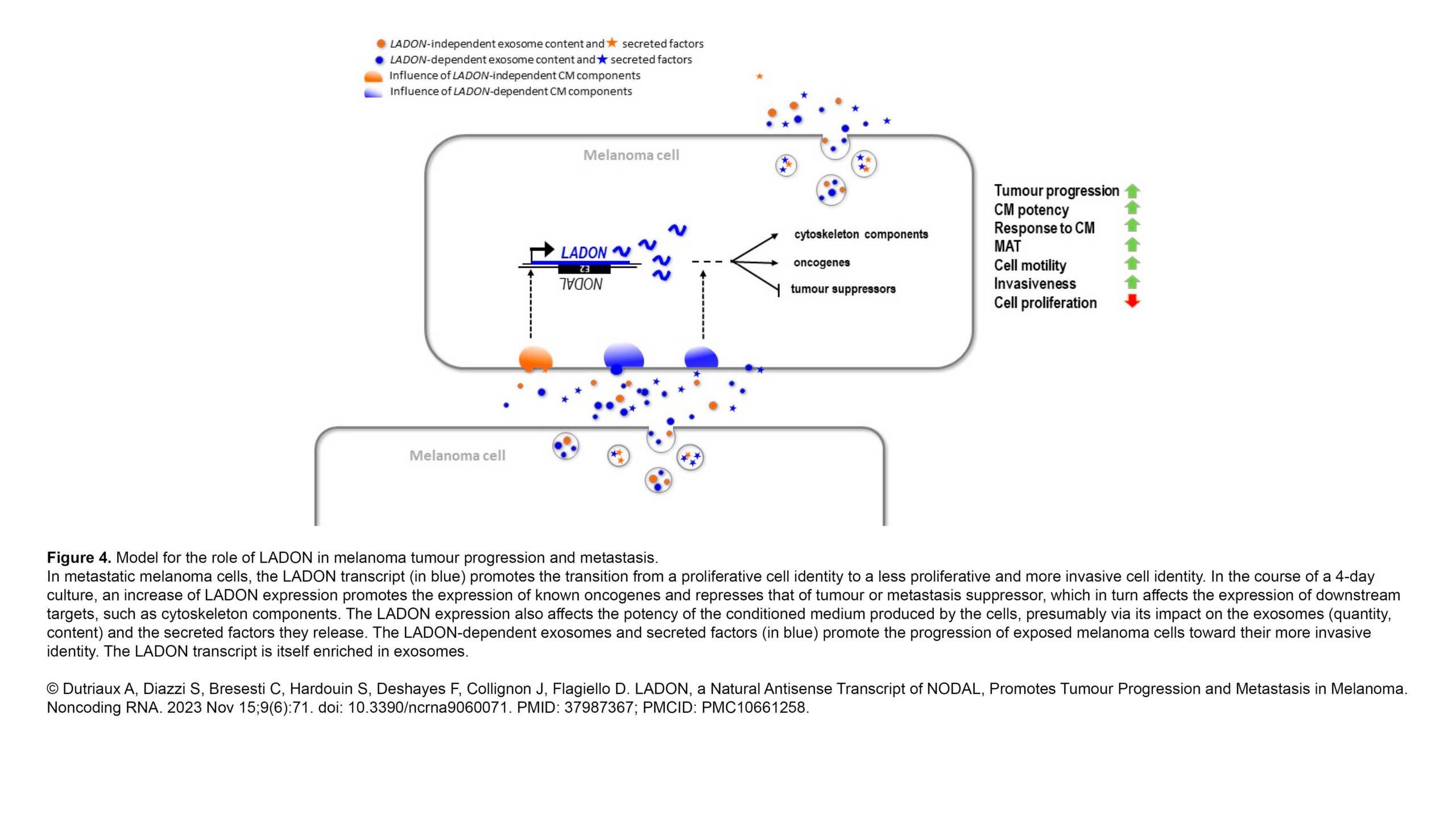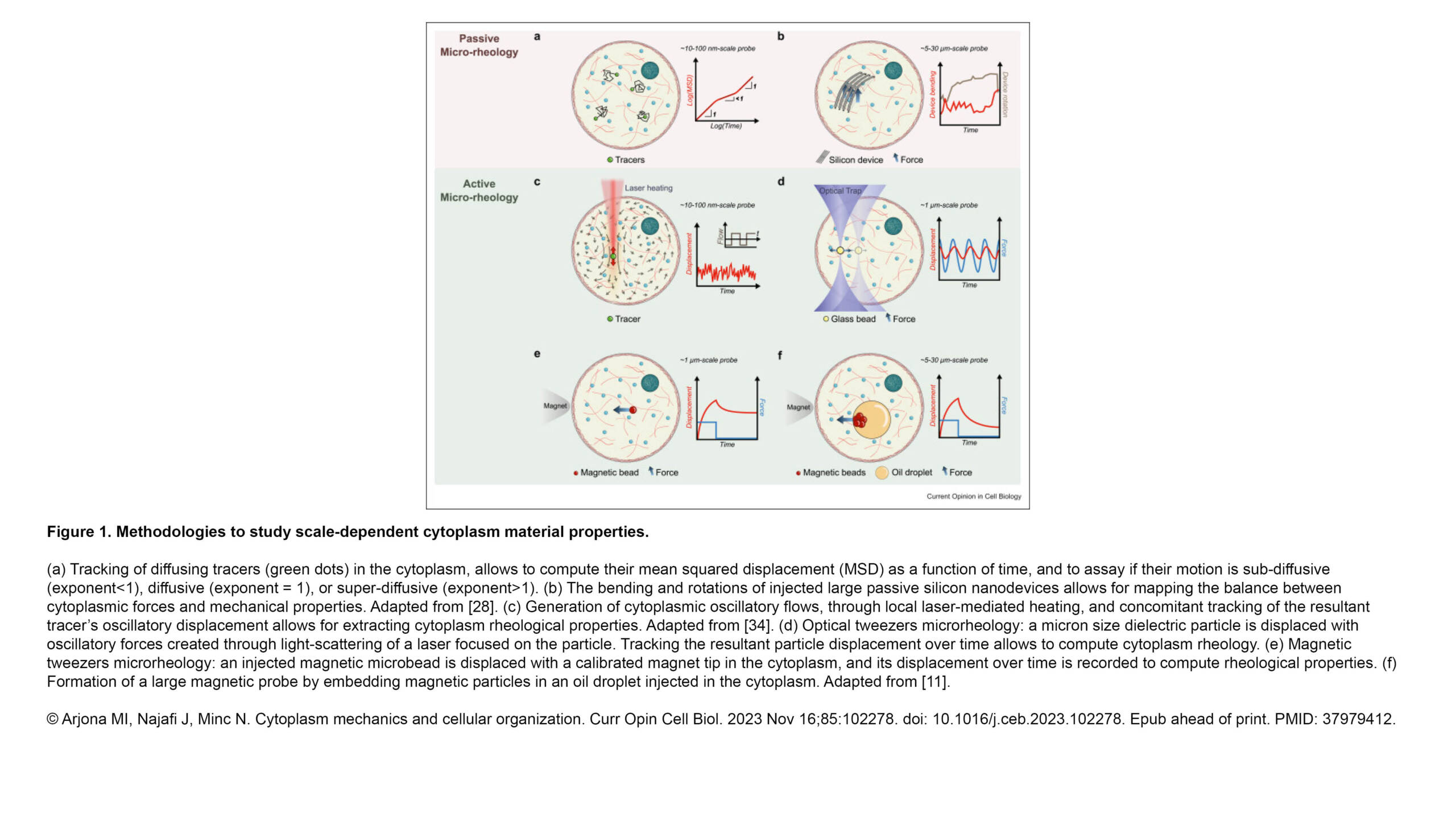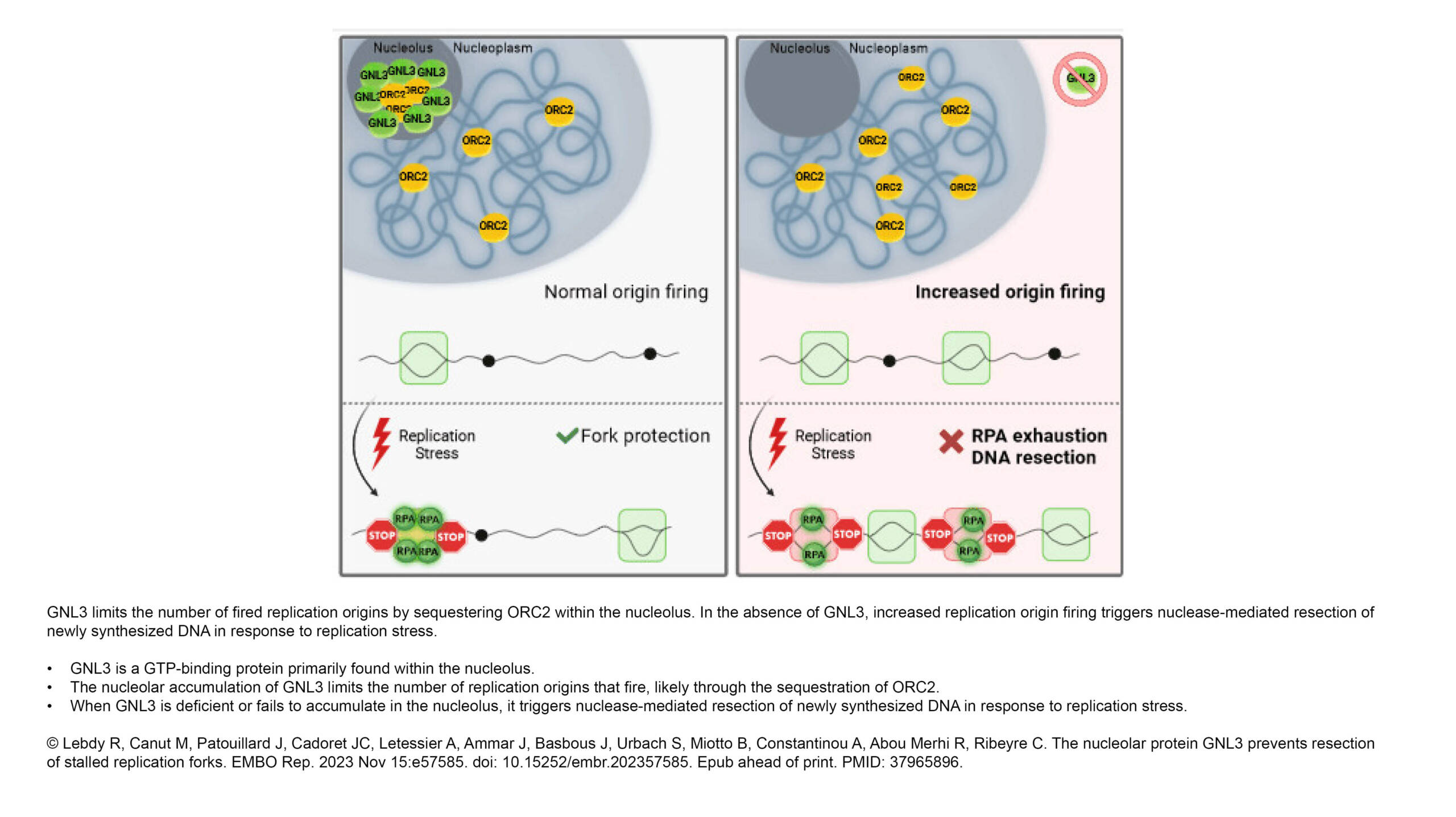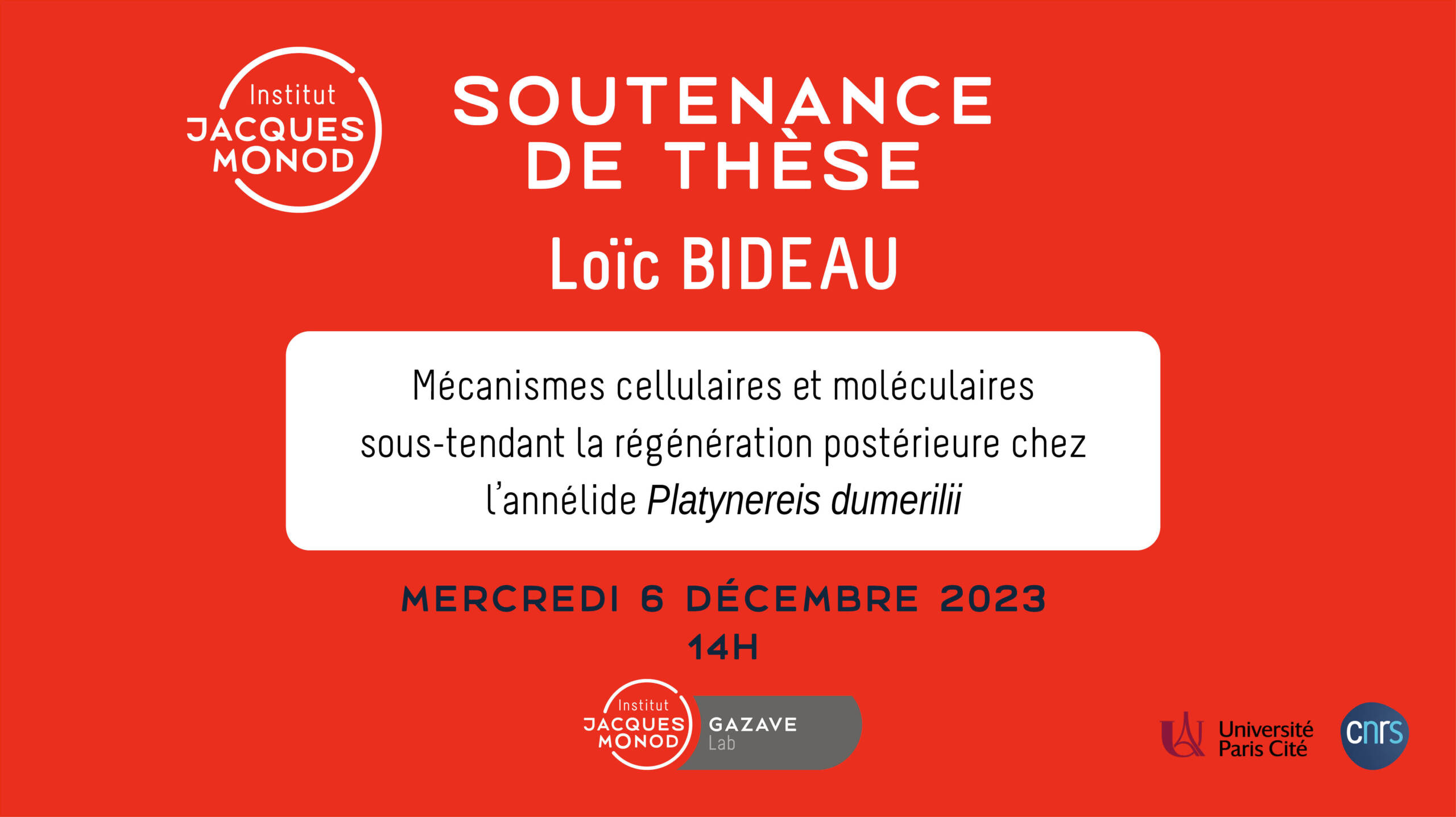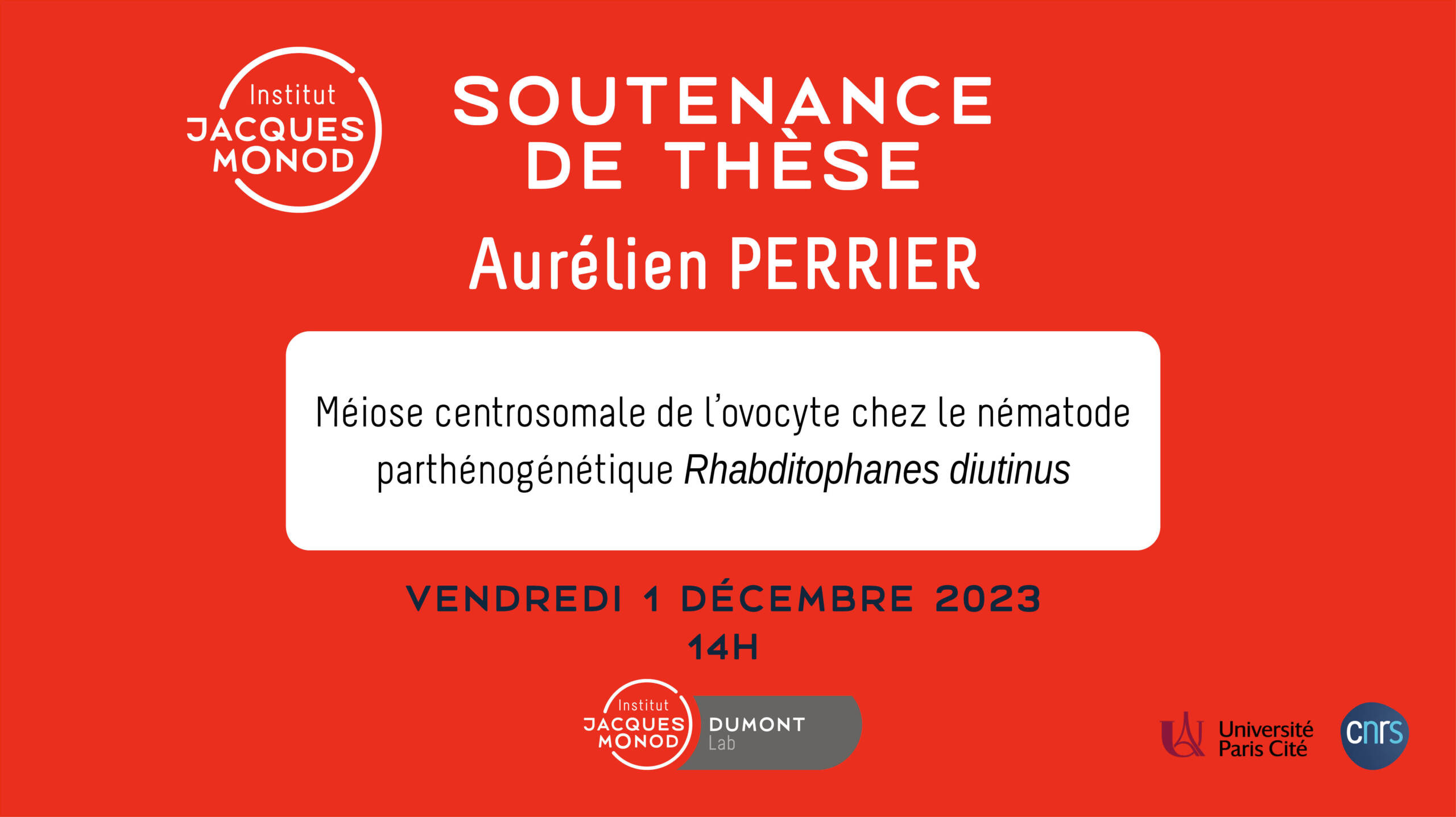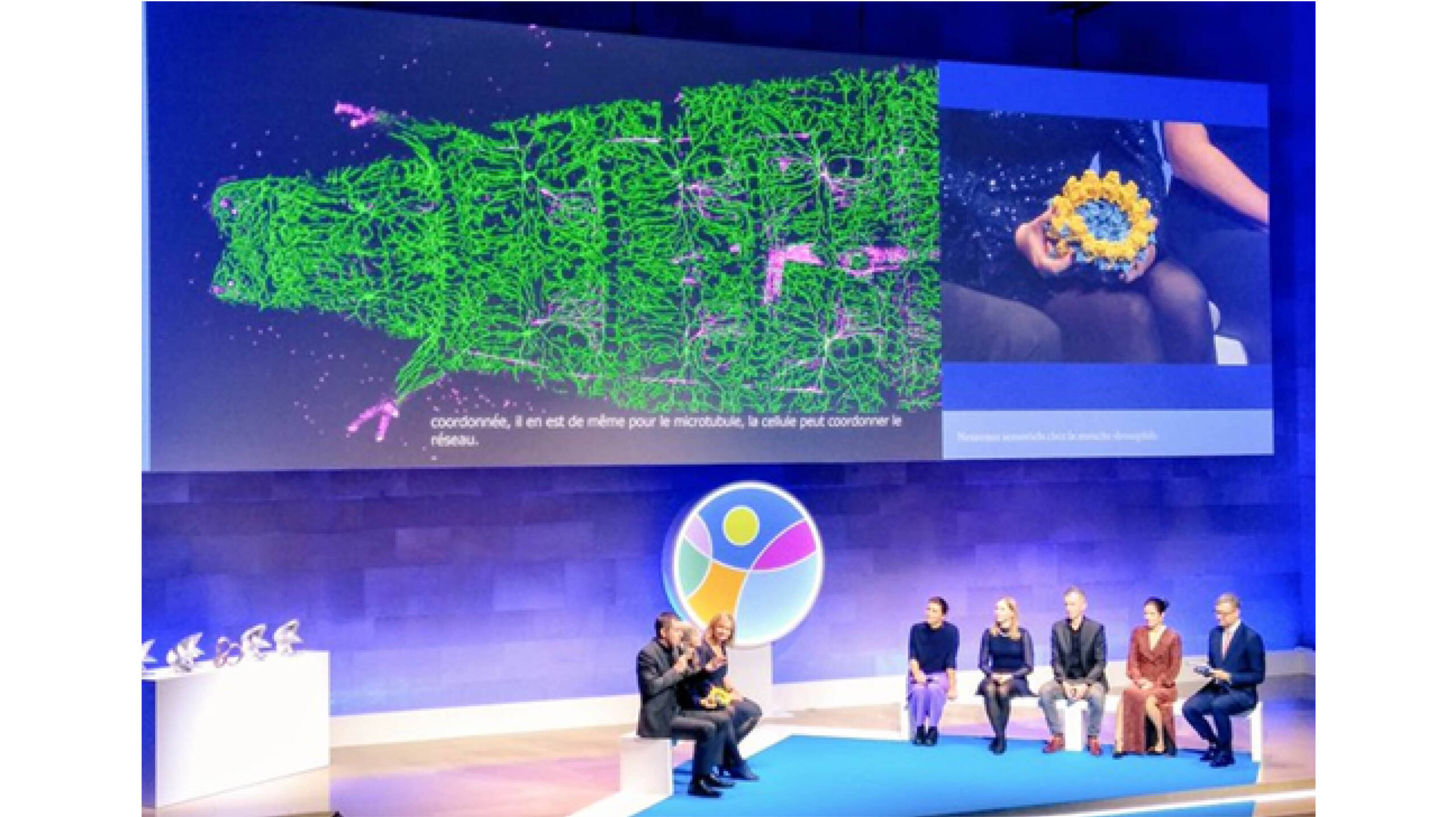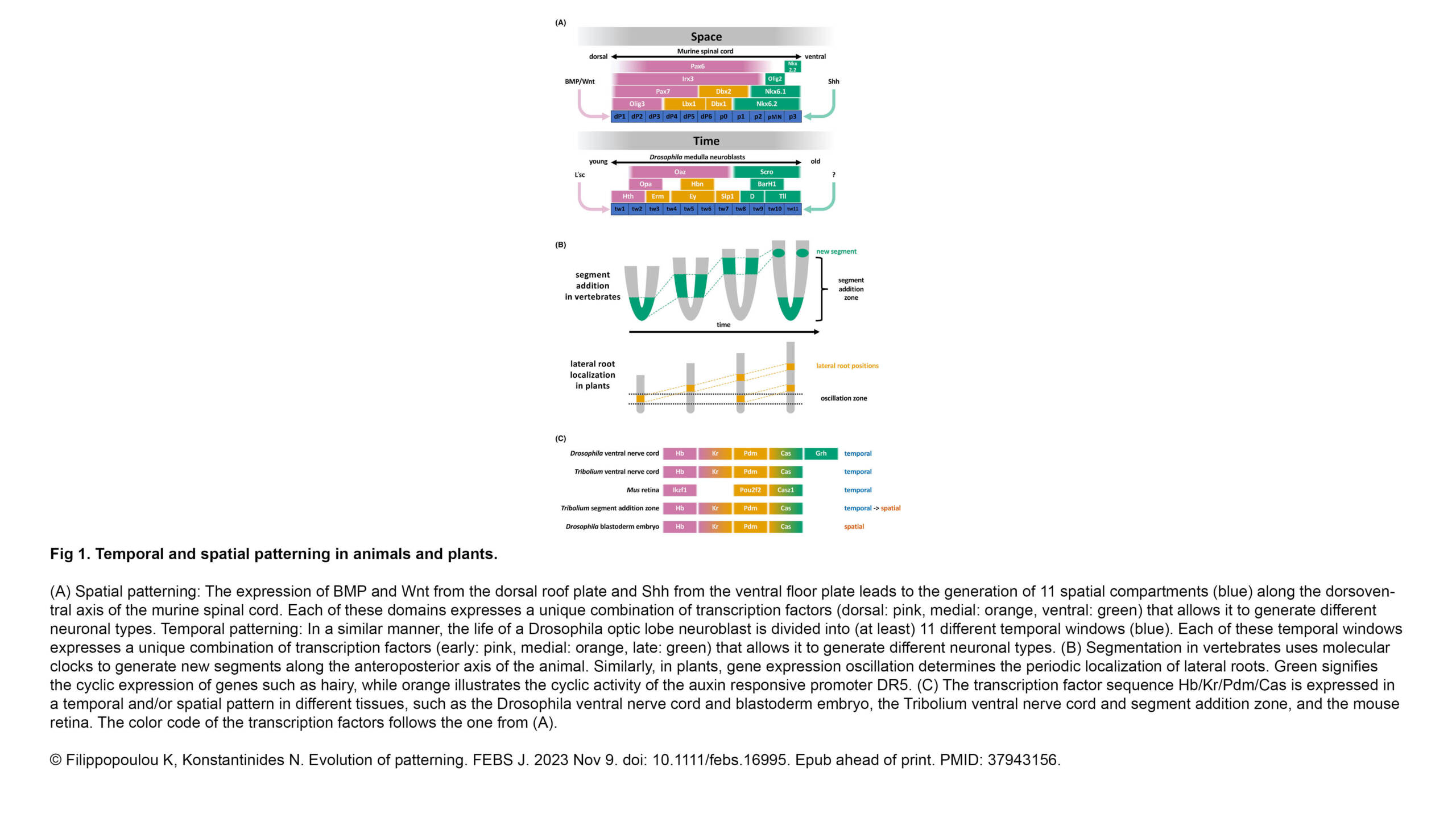Antoine Langeoire (Wassmann Lab) will defend his thesis:
Étude de la correction des erreurs d’attachement durant la deuxième division de méiose dans l’ovocyte de souris
The defense will take place on Wednesday, December 20th at 2pm in the Salle François Jacob (Institut Jacques Monod, 15 rue Hélène Brion 75013 Paris) and will be in French.
The jury…
